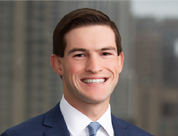A “New Day” in Collegiate Athletics: NCAA Prosecutes First Name, Image, and Likeness Infraction
For the first time in the National Collegiate Athletic Association’s (“NCAA”) history, the Division I Committee on Infractions accepted a submission to settle charges against a university for violating Name, Image, and Likeness (“NIL”) bylaws. See Negotiated Resolution, University of Miami (Florida), Case No. 020161 (Feb. 24, 2023) (“Negotiated Resolution”). NIL-related matters continue to receive significant attention from educational institutions, NIL collectives, and state governments across the country.1 Effective January 1, 2023, the NCAA adopted a bylaw for potential NIL infractions, which allows the NCAA to “presume a violation occurred if circumstantial information suggests that one or more parties engaged in impermissible conduct.”2
In the Negotiated Resolution, the NCAA opined that “[b]oosters are involved with prospects and student-athletes in ways the NCAA membership has never seen or encountered.” As a result, “addressing impermissible booster conduct is critical,” and will likely become a high-priority for the NCAA in the near future.
I. NIL: A Fundamental Shift in Collegiate Athletics
In 2021, the United States Supreme Court unanimously upheld a Ninth Circuit ruling that the NCAA’s bylaws which limited student-athlete benefits, such as compensation unrelated to education, violated the antitrust laws under the Sherman Act.3 As a result, the NCAA proceeded to approve a new NIL policy that allowed student-athletes to be compensated for their “right of publicity.” Under the NCAA’s NIL policy, student-athletes are allowed to use their name, image, and likeness for commercial purposes, including autographs, promotions of products and services, and making personal appearances.
II. Factual Background: NCAA Pursues First Enforcement of NIL Bylaws
On February 24, 2023, the NCAA issued its first resolution for an NIL infraction. According to the NCAA, the University of Miami Women’s Head Basketball Coach facilitated an impermissible meeting between a Miami booster and two prospective student-athletes, who are nationally recognized social media influencers, and their parents.
Prior to meeting with the prospective student-athletes, the head coach provided the booster with the prospects’ profiles that were created internally to assist Miami staff members with the recruitment process. At the direction of the head coach, the prospective student-athletes were informed that the booster was a “legitimate businessman.” After receiving this information, the prospective student-athletes scheduled a meeting with the booster in advance of their official visit. During this meeting, the booster provided a tour of his home, served a chef-prepared meal, and promoted the university and the city of Miami. The student-athletes stated that the meeting did not impact their decision to enroll at Miami. Nevertheless, the NCAA alleged that the head coach’s involvement in connecting the family and the booster resulted in an impermissible recruiting contact and inducement.
III. Key Takeaway: “Today’s New NIL-Related Environment Represents a New Day”
The Negotiated Resolution signals that the NCAA could prioritize the enforcement of NIL bylaws in the future. While the Negotiated Resolution may not be appealed and does not set precedent for future infractions, the NCAA membership (i.e., universities) would be well served to learn from this unprecedented agreement. Despite imposing limited penalties against Miami, the NCAA could be poised to seek the disassociation of boosters for future NIL infractions.4
In a preamble to the Negotiated Resolution, the Committee on Infractions stated that it “was troubled by the limited nature and severity of institutional penalties agreed-upon by Miami and the enforcement staff—namely, the absence of a disassociation of the involved booster.” When addressing booster misconduct, the NCAA said that “the disassociation penalty presents an effective penalty available to the [Committee of Infractions.]” As a result, the Committee on Infractions “will strongly consider disassociation penalties in future cases involving NIL-adjacent conduct.” Therefore, universities might consider evaluating current policies and educating employees and boosters on the relevant bylaws to avoid infractions and significant penalties.
While the Negotiated Resolution leaves many NIL enforcement questions unanswered, it is a noteworthy first step for the NCAA in monitoring and enforcing the relevant bylaws. In addition to NCAA enforcement, the NIL arena also presents a wide range of other potential legal pitfalls for participants in areas such as contractual liability (i.e., regarding agreements between collectives or other individuals and entities paying student-athletes), tax ramifications (for both student-athletes and individuals and entities paying them), and navigation of a varied web of relevant state legislation.
(2) Since this matter was processed prior to the adoption of NCAA Bylaw 19.7.3, the Committee on Infractions could not presume that any NIL activities resulted in NCAA violations.
(3) NCAA v. Alston, 141 S. Ct. 2141 (2021).
Vedder Thinking | Articles A “New Day” in Collegiate Athletics: NCAA Prosecutes First Name, Image, and Likeness Infraction
Article
February 27, 2023
For the first time in the National Collegiate Athletic Association’s (“NCAA”) history, the Division I Committee on Infractions accepted a submission to settle charges against a university for violating Name, Image, and Likeness (“NIL”) bylaws. See Negotiated Resolution, University of Miami (Florida), Case No. 020161 (Feb. 24, 2023) (“Negotiated Resolution”). NIL-related matters continue to receive significant attention from educational institutions, NIL collectives, and state governments across the country.1 Effective January 1, 2023, the NCAA adopted a bylaw for potential NIL infractions, which allows the NCAA to “presume a violation occurred if circumstantial information suggests that one or more parties engaged in impermissible conduct.”2
In the Negotiated Resolution, the NCAA opined that “[b]oosters are involved with prospects and student-athletes in ways the NCAA membership has never seen or encountered.” As a result, “addressing impermissible booster conduct is critical,” and will likely become a high-priority for the NCAA in the near future.
I. NIL: A Fundamental Shift in Collegiate Athletics
In 2021, the United States Supreme Court unanimously upheld a Ninth Circuit ruling that the NCAA’s bylaws which limited student-athlete benefits, such as compensation unrelated to education, violated the antitrust laws under the Sherman Act.3 As a result, the NCAA proceeded to approve a new NIL policy that allowed student-athletes to be compensated for their “right of publicity.” Under the NCAA’s NIL policy, student-athletes are allowed to use their name, image, and likeness for commercial purposes, including autographs, promotions of products and services, and making personal appearances.
II. Factual Background: NCAA Pursues First Enforcement of NIL Bylaws
On February 24, 2023, the NCAA issued its first resolution for an NIL infraction. According to the NCAA, the University of Miami Women’s Head Basketball Coach facilitated an impermissible meeting between a Miami booster and two prospective student-athletes, who are nationally recognized social media influencers, and their parents.
Prior to meeting with the prospective student-athletes, the head coach provided the booster with the prospects’ profiles that were created internally to assist Miami staff members with the recruitment process. At the direction of the head coach, the prospective student-athletes were informed that the booster was a “legitimate businessman.” After receiving this information, the prospective student-athletes scheduled a meeting with the booster in advance of their official visit. During this meeting, the booster provided a tour of his home, served a chef-prepared meal, and promoted the university and the city of Miami. The student-athletes stated that the meeting did not impact their decision to enroll at Miami. Nevertheless, the NCAA alleged that the head coach’s involvement in connecting the family and the booster resulted in an impermissible recruiting contact and inducement.
III. Key Takeaway: “Today’s New NIL-Related Environment Represents a New Day”
The Negotiated Resolution signals that the NCAA could prioritize the enforcement of NIL bylaws in the future. While the Negotiated Resolution may not be appealed and does not set precedent for future infractions, the NCAA membership (i.e., universities) would be well served to learn from this unprecedented agreement. Despite imposing limited penalties against Miami, the NCAA could be poised to seek the disassociation of boosters for future NIL infractions.4
In a preamble to the Negotiated Resolution, the Committee on Infractions stated that it “was troubled by the limited nature and severity of institutional penalties agreed-upon by Miami and the enforcement staff—namely, the absence of a disassociation of the involved booster.” When addressing booster misconduct, the NCAA said that “the disassociation penalty presents an effective penalty available to the [Committee of Infractions.]” As a result, the Committee on Infractions “will strongly consider disassociation penalties in future cases involving NIL-adjacent conduct.” Therefore, universities might consider evaluating current policies and educating employees and boosters on the relevant bylaws to avoid infractions and significant penalties.
While the Negotiated Resolution leaves many NIL enforcement questions unanswered, it is a noteworthy first step for the NCAA in monitoring and enforcing the relevant bylaws. In addition to NCAA enforcement, the NIL arena also presents a wide range of other potential legal pitfalls for participants in areas such as contractual liability (i.e., regarding agreements between collectives or other individuals and entities paying student-athletes), tax ramifications (for both student-athletes and individuals and entities paying them), and navigation of a varied web of relevant state legislation.
(2) Since this matter was processed prior to the adoption of NCAA Bylaw 19.7.3, the Committee on Infractions could not presume that any NIL activities resulted in NCAA violations.
(3) NCAA v. Alston, 141 S. Ct. 2141 (2021).
Professionals
-
Services




